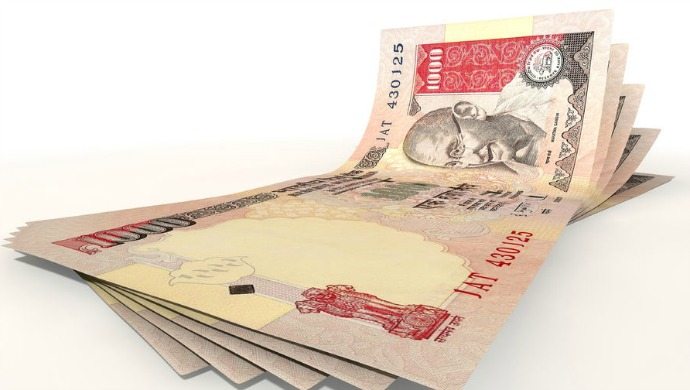While the entire world was glued to their TV sets to get live updates on the US Presidential elections, it was Prime Minister Narendra Modi who hogged all the limelight back in India last night.
In an abrupt and covert move, Modi went on air on Tuesday evening to announce the abolition of high-value currencies (INR500 and INR1,000), in a bid to curb black money, corruption and counterfeiting.
While a large section of the population hailed it as a bold move towards making India an investment-friendly destination, Modi’s detractors vehemently criticized the move, saying this will adversely affect the life of the common man and the unbanked. Some others said that demonetisation of currencies will not help in curbing money laundering, as over 90 per cent of the money earned through illegal means are stashed away in foreign tax havens, or kept in the form of gold and real-estate.
While the country is busy weighing the pros and cons of the terrific move, one industry is rejoicing, however — startups, because they know they have struck gold.
The signs of changes are already visible, with e-commerce companies like Flipkart and Amazon restricting cash-on-delivery (CoD) payment methods, and with cab-hailing majors like Uber and Ola also moving toward that direction.
“Cash has long been the king in India, as cash is convenient and fungible — and more important there’s no learning curve involved,” says Raj K Mitra, an investment expert and former journalist. “For India’s online retailers, cash on delivery accounts for 50 to 80 per cent of transactions. That’s why the bold yet much needed move to ban 500 and 1000 currency notes and allow limited cash withdrawals from ATMs could weigh on discretionary consumer spending at least over the next couple of months before normalizing.At the same time, electronic payments are likely to get a major boost with wallet companies like Paytm and MobiKwik being the biggest beneficiaries as the ban pushes India further toward a cashless economy,” he quickly added.
Manish Patel, Founder and CEO of Mswipe, a mobile point of sale (mPoS) company, echoes Mitra’s views, but was quick to add that long-term impact of the move cannot be measured just yet.
“While it is a massive move to check fake currency lobbies and black money, it is definitely going to boost the fintech industry in India. This a significant first step towards turning India into a cashless economy,” he said.“That said, since India is still a cash economy, this announcement is not going to change the customer behaviour overnight. The long-term impact is still unknown.”
Saurabh Vashishtha, Vice President at Alibaba-backed Paytm, said, “Today is a historic day for India, and it re-validates our belief in giving consumers a great experience through non-cash purchases. This reflects in the fact that over 98 per cent of items are bought through our wallet and other pre-paid payment instruments on our marketplace. Keeping in spirit of the moment we are temporarily disabling CoD orders to avoid any inconvenience to our consumers at the time of delivery.”
“I feel there will be a short-term pain for e-commence companies as the CoD sales will be impacted. But in the long term, it will be great for e-commerce companies. This move will greatly benefit the digital payment economy in the country. Coupled with low-cost Indian fintech stack and venture capital, we could see emergence of new payment companies,” adds Rajesh Sawhney, Founder of GSF Accelerator and foodtech startup InnerChef.
According to Sirish Kumar, Founder and CEO of Telr, an online payment gateway in India, the UAE and Saudi Arabia, this is a big forward step towards cashless economy. “The informal or parallel economy share is expected to come down in the next few years. This will prompt more innovation in the nascent electronic payment industry. This reiterates that opportunities in India for developing electronic payment methods for sellers is unprecedented amongst all emerging markets.Without doubt, this will bring down frauds and thefts and costs of printing cash. Overall, if executed well, the costs of doing transactions between buyers and sellers will lower significantly,” he mentioned.
This also provides big opportunities for the online transport ticketing industry. “I believe this move will surely lead to a cashless economy because people would be required to carry small denomination currency only. Consequently, both consumers and small businesses would have to move towards plastic money and network effect will kick in. Transport being the third biggest expense for any household, startups like ours, which are working towards making everyday transactions cashless for 1.2 billion people, can facilitate this government initiative,” said Brijraj Vaghani, Co-founder and CEO (Business & Technology) of Ridlr, a bus ticketing app.
It is not just the conventional startups that are celebrating this move, but cryptocurrency providers are also seeing massive potential benefits. “The intentions are good but very difficult to achieve. If going cashless is the only way forward, certainly bitcoin, which is a border less, trust less, and transparent currency, makes more sense,” said Sathvik Vishwanath, CEO and Co-founder of Unocoin, a Bitcoin startup.
India is moving towards a digital economy, with the Modi government taking all necessary measures to reduce the dependency on hard currencies. The government is encouraging citizens to open bank accounts and shift all major transactions through online means.
On a side note: When the vote counting is over with Donald Trump winning the US Presidential elections, some politicians and businessmen in India are perhaps busy counting their black money, before they are dumped or burnt.
Source: https://e27.co/india-demonitise-large-bills-country-shifting-cashless-economy-20161109/







